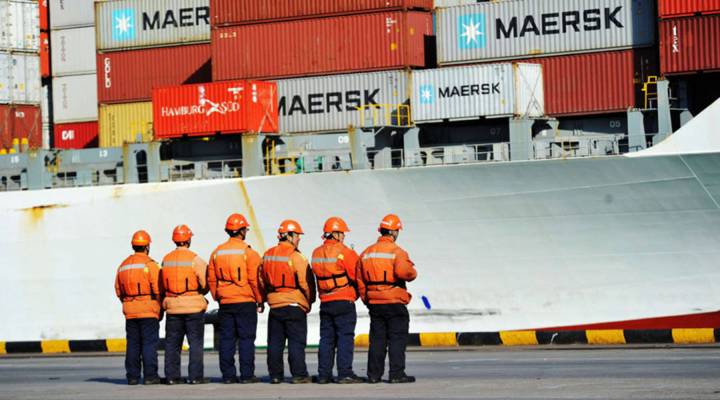
Who’s asking for exemptions from Trump’s tariffs?
Who’s asking for exemptions from Trump’s tariffs?

We’ve been doing some digging into some of the 2,200 exemption requests the Department of Commerce has received from American companies who want to get out from under the steel and aluminum tariffs — 25 percent and 10 percent, respectively — that went into effect March 23.
About 400 exemptions have been posted so far, and they’re up for 30 days so the public can make comments. And they really run the gamut. A lot of big manufacturers in the steel industry are asking for millions of kilograms worth of exemptions, but everyday household American-made products are on the line as well: piano strings made by a hundred-year-old American manufacturer, Schick razors, the whiteboards you see everywhere and fishing hooks.
“If we can’t get the exemption, we will stop making that product altogether,” said Amanda Kimball, an engineer at fishing hook manufacturer Wright & McGill Co. in Colorado.
Its stainless steel hooks take about 5 tons of imported Japanese steel every year to produce. If Wright & McGill isn’t approved for the exemption, customers “would [have to] buy the ones that are built in China,” Kimball said.
Arrow Gear in Downers Grove, Illinois, makes precision gears for aerospace companies, and it’s facing tariffs on a specific grade of metal it imports from Europe. John Waller is a materials planner at Arrow, and he said comparable American steel probably won’t cut it.
“There would be concerns about durability and life expectancy of the steel itself. You know, case in point, we wouldn’t want to have a metal fatigue thing like recently with Southwest Airlines,” Waller said.
It’s a bit down the supply chain from the consumer, but if the company doesn’t get an exemption, higher tariff-induced costs could find their way into your plane ticket.
“We’re, you know, third-tier suppliers, so we’re sending to one company, and they’re adding it into the engine. The engine then goes get sold to Boeing and the price goes up, and then that guy’s price goes up and so on and so forth. I’m not quite sure Boeing is in the market nowadays to just absorb those type of costs,” Waller said.
There’s a lot happening in the world. Through it all, Marketplace is here for you.
You rely on Marketplace to break down the world’s events and tell you how it affects you in a fact-based, approachable way. We rely on your financial support to keep making that possible.
Your donation today powers the independent journalism that you rely on. For just $5/month, you can help sustain Marketplace so we can keep reporting on the things that matter to you.












